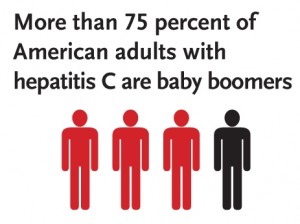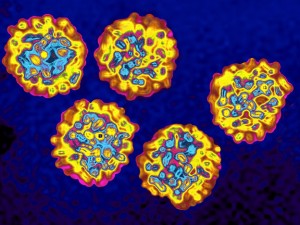Last year, I wrote about a recommendation from the Centers for Disease Control and Prevention (CDC) that all baby boomers born between 1945 and 1965 get a one-time blood test for Hepatitis C. The reason for its recommendation was that baby boomers are five times more likely to be infected than other adults and account for more than three-quarters of all cases of the infection in this country.
The CDC estimated that if baby boomers would get the one-time blood test, more than 800,000 news cases could be identified and appropriately treated. Currently, many patients with chronic hepatitis C are treated with a combination of medications to remove the virus from the blood and reduce the risks associated with long-term infection.
About 70 percent of cases are cured, but patients can suffer severe side effects from some of the drugs. The NPR blog “Shots” just published a story about a promising new drug that doesn’t appear to have the usual side effects. You can read the blog post here: ‘Sponge’ Drug Shows Promise for Treating Hepatitis C.



Leave A Comment